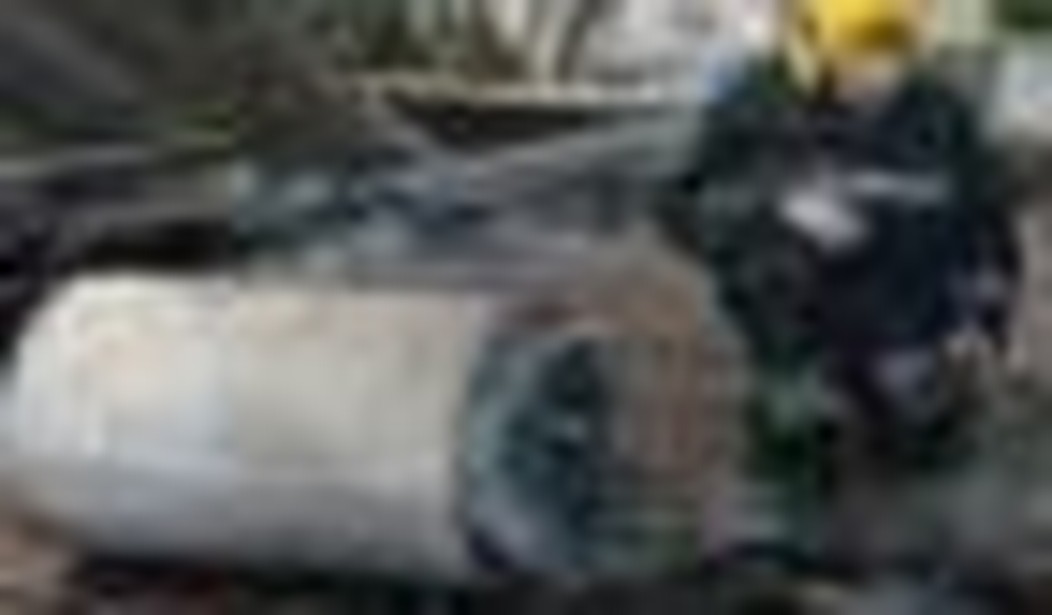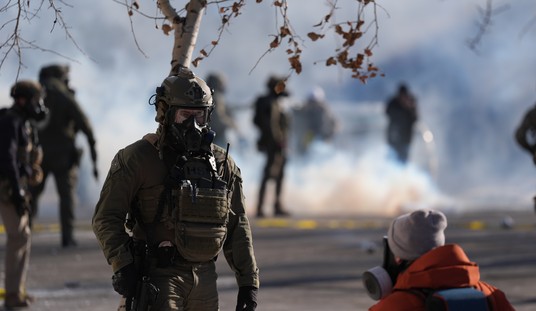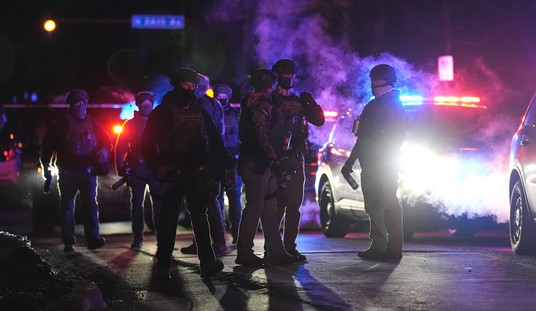At about 7:30 Thursday morning Israel time, while Israeli warplanes, tanks, and artillery were pounding the smuggling tunnels at the Gaza-Sinai border, at least two rockets fired from Lebanon hit the area of Nahariya near the northern end of the Israeli coast.
The Jerusalem Post reported that “one of the rockets went through the roof of a Nahariya retirement home and exploded in the kitchen where about 25 elderly residents were eating breakfast in the adjacent dining hall. One resident suffered a broken leg, another bruises.” The two were rushed to a local hospital and five others were treated for shock.
The Israeli army responded with artillery fire at the launching sites in southern Lebanon. The automatic suspect for the attack was, of course, Hezbollah. Later in the morning Lebanese Information Minister Tarek Mitri announced that Hezbollah had denied any connection to the rockets. Lebanese Prime Minister Fouad Siniora condemned the attack — as well as Israel’s retaliation, showing that he was well schooled in the moral-equivalency tenets that now bedevil almost all public verbiage about Israel.
Israel’s Northern Command said the attack was indeed “carried out by Palestinian elements in Lebanon” rather than Hezbollah. But that hardly absolve the Iranian-backed terror group, with one defense official pointing out that “Nothing happens in Lebanon without a green light from Hezbollah. Even if it was a Palestinian group … Hezbollah would at least have had to turn a blind eye.”
In keeping with its policy since Hezbollah gained veto power in the Lebanese cabinet last May and became a central — arguably the dominant — component of its government, Israel cast blame for the attack on Lebanon itself and said it “holds the government of Lebanon and the Lebanese armed forces responsible for preventing rocket fire into Israel.” The Israeli cabinet had formally announced last August that it would hold Lebanon, as a state, answerable for any further attacks on Israel — meaning that, if it came to it, Israeli forces would have a free hand to hit Lebanese targets and not just Hezbollah itself.
Speculation had been rife as to why, with Operation Cast Lead now almost two weeks old, Hezbollah hadn’t opened a second front on Israel’s north as was widely anticipated. Some claimed the war in Gaza was just a diversion by Iran from its progress toward the bomb, and so didn’t need another front. Some said Hezbollah was more concerned with its prospects in the upcoming Lebanese elections in June and didn’t want to rock the boat by plunging the south, and possibly all of Lebanon, into war. It was also claimed that Iran was waiting to use Hezbollah for more dramatic purposes once Iran goes nuclear.
One Israeli analyst, Yoav Stern, is sure that Hezbollah and ultimately, of course, Iran are behind this morning’s incidents, noting that:
Several days before Israel launched Operation Cast Lead … Iranian foreign minister Manouchehr Mottaki called several of his European counterparts and warned that Israel would face additional fronts if it attacked [Hamas in Gaza].
The rocket fire on Thursday morning … can be seen as the realization of the Iranian threat.
It is safe to assume that Palestinian operatives, working in coordination with Hizbullah and sponsored by Iran, are responsible. …
For now, Hezbollah is too sophisticated to claim responsibility. …
However, Nasrallah’s rhetoric from recent days says it all: “We are prepared for all Israeli aggression,” he said. In other words, Hezbollah won’t take responsibility for the rockets into Israel, but will claim credit for standing up against any Israeli retaliatory attacks, should there be any. …
Israel must now decide what the price tag will be for Thursday’s attacks on the north, knowing that a harsh response is likely to bring with it an escalation on the northern front and increasing international criticism.
If the border tensions escalate, it will also be a test case for the arrangements in place since August 2006 when, at the end of the Second Lebanon War, UN Security Resolution 1701 mandated the deployment to southern Lebanon of the Lebanese army and a beefed-up UNIFIL force ostensibly to keep Hezbollah in check and prevent further hostilities.
Critics have charged that 1701 is a flop because, since that time, Hizbullah has tripled its arsenal of missiles under the Lebanese army and UNIFIL’s vacant gaze. Israeli prime minister Ehud Olmert has continued to claim that 1701 — and the Second Lebanon War itself — is a success because Hezbollah hasn’t been firing any of these projectiles and is supposedly deterred. Reports that UNIFIL and the Lebanese army had been stepping up their border patrols since Cast Lead began seemed to bolster the more positive view
An escalation in the north, though, would put an end to much of this speculation. It would show that 1701 has prevented neither Hezbollah’s armament nor its use of the arms, which would seem logical since terror organizations and other entities don’t generally amass arsenals just to look at them. It would also show that Iran is indeed interested in expanding the war even at a time when it is in economic distress from falling oil prices.
Israeli Defense Minister Ehud Barak, visiting the northern border early on Thursday afternoon to meet with Israeli troops, said that “we are vigilant and we will react according to developments.”









Join the conversation as a VIP Member